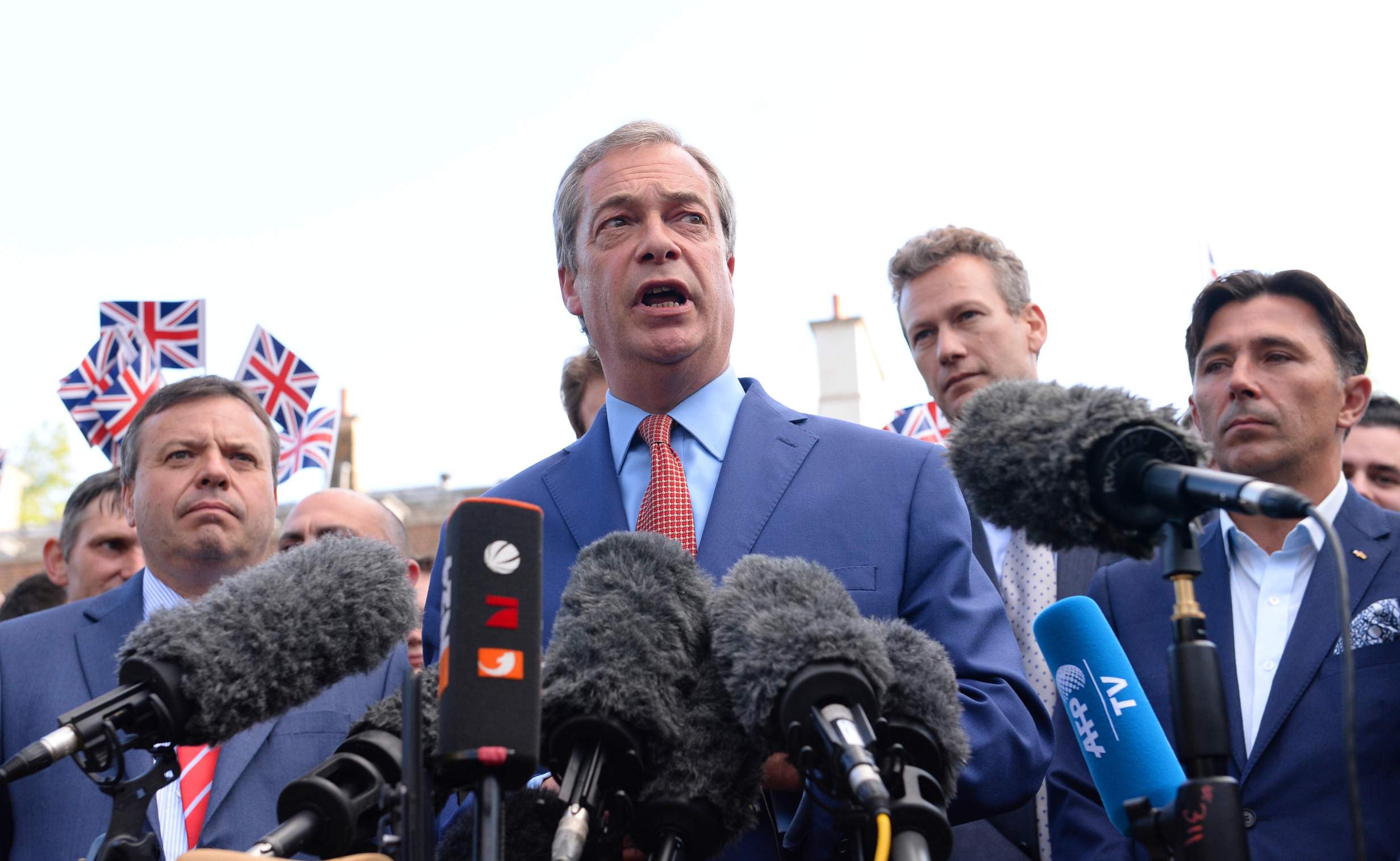
Read our Monthly Magazine
And support our mission to provide fearless stories about and outside the media system
Three former MPs are stepping up their claim that the UK Government is failing in its duty to protect elections from foreign interference, in a new case lodged today with the Grand Chamber of the European Court of Human Rights.
The legal challenge from former MPs Caroline Lucas, Ben Bradshaw and Alyn Smith calls for “clear, positive duties to investigate and safeguard foreign influence”.
In a statement on the court appeal, non-profit group The Citizens notes the recent conviction of former Wales Reform leader Nathan Gill.
In September, Gill pleaded guilty to eight counts of bribery following a Met Counter Terrorism Command investigation into payments for pro-Russia statements when he was a member of the European Parliament. Reform insiders told Byline Times it is ‘inconceivable’ that Reform leader Nigel Farage did not know about his close aide’s pro-Russian statements.
Last week, Byline Times and The Nerve revealed that in 2021, after leaving Reform, Gill was preparing to give a presentation about the potential role of cryptocurrencies in political funding, for his Russian sponsors.
The appeal to the European Court of Human Rights points out that electoral interference from hostile states threatens member nations as we speak.
Interference across Europe
The filing from Caroline Lucas and others states: “There is credible evidence that the Russian Federation interfered in Moldova’s elections of 28 September 2025. Alleged Russian interference prompted Romania’s Constitutional Court to annul the first round of its presidential election in December 2024, undermining public confidence in democracy and the rule of law.”
And it points out that the European Union (separate to the ECHR) has identified that the Russian Federation “has engaged in a systematic, international campaign of media manipulation and distortion of facts…especially during election periods.”
It also comes amid allegations of Brits spying for China, with the Prime Minister confirming his intent to publish witness statements from the recent collapsed espionage case (the two individuals deny lawbreaking).
The Grand Chamber is the equivalent of the ECHR’s ‘Supreme Court’ and only hears cases of ‘exceptional importance or complexity’ and the claim is the final stage of a five-year legal battle that was first launched in 2020.
The Citizens and the MPs are represented by law firm Leigh Day. In 2020, the crowdfunded case was the first time a group of sitting MPs had sued the Government over matters of national security.
Even though all three MPs have now left parliament, they have persevered with the claim and are now appealing to Europe’s top human rights court.
The claims asks the court to confirm “a clear, enforceable duty on the UK to investigate credible foreign interference in elections and to adopt proactive safeguards,” under Article 3 of Protocol 1 to the European convention on Human Rights – the right to free and fair elections.
The group first challenged the Government in the UK High Court after parliament’s Intelligence and Security Committee published the Russia Report citing “credible evidence” of Russian interference. Following that report, then-Prime Minister Boris Johnson refused the demands of MPs on the committee to launch an inquiry.
Among those who provided evidence and urged action was Lord Peter Ricketts, the UK’s first ever national security advisor. He said he was “very surprised” the Government had not sought evidence over Russian interference in the Brexit vote, and said he “did not understand why the Government would choose not to investigate.”
When that claim failed, the group took the claim to the European Court of Human Rights in 2022. That case was fast tracked through the court after being classified as a case of “significance” with relevance to other member states.
On July 22, 2025, the court ruled against the case of Bradshaw and Others v United Kingdom. But now, having sought independent counsel, the group has decided to challenge the decision.
Don’t miss a story
Firmer Advice Needed
The ‘referral request’ to the Grand Chamber lodged today asks for clarity on what “states must do when faced with hostile interference in their electoral processes.”
“These issues go to the core of rights protected by the Convention: the maintenance of a free and democratic society in which the people are able freely to choose their leaders and representatives”.
While the former MPs lost the July case, the judgement did recognise for the first time that “European states have a positive obligation to safeguard citizens from disinformation and covert influence by foreign powers.”
But although that judgment established a critical principle, it stopped short of requiring the UK to hold a full public inquiry into Russian interference, saying the previous Government had acted – to an extent – on warnings.
The claimants now want to see guidance that turns that principle into “practical, reviewable duties” (including duties of investigation and prevention) for foreign interference from any state.
A five-judge panel of the Grand Chamber is now set to review the appeal request. If the five-judge panel accepts the referral, the case is transferred to the 17-judge Grand Chamber. The original Chamber judgment would be set aside. Fresh written submissions and potentially a new hearing may take place.
The Grand Chamber would then issue a final judgment, which cannot be appealed.
‘The Threat is Growing’
Tom Short, Senior Associate at Leigh Day said: “Our clients remain steadfast in their message that foreign interference in UK democratic processes must be properly investigated and the UK Government must act to protect citizens’ right to free and fair elections.
“This landmark case and appeal to the Grand Chamber is made against the backdrop of the Government refusing to act on its own findings through the Intelligence and Security Committee that Russia has already interfered in our democratic processes. The threat of foreign interference is real and, as the recent Nathan Gill case shows, is growing.”
Caroline Lucas, the former leader of the Green Party who served as an MEP, added: “This case goes to the heart of how Governments’ discharge their responsibility to protect our electoral processes from hostile interference, and it raises hugely important issues of principle when it comes to developing Convention case law.
“The maintenance of a free and democratic society where people can freely choose their leaders and representatives are core rights protected by the Convention – but unless Governments are required to act on them, they remain theoretical.
“By requesting this referral to the Grand Chamber, we are doing all we can to ensure that the Convention’s guarantees are practical and effective. At a time of deepening geopolitical insecurity, clarification in these matters could not be more urgent.”
Despite finding credible evidence of election interference by the Russian Federation in 2019, the UK did not pass legislation in response to it until 2023, through the National Security Act. Some of the key planks of that legislation only became active very recently, including the Foreign Influence Registration Scheme coming into force on July 1st 2025.
And there is still no single entity with legal responsibility to prevent and combat interference in UK elections.
The issue remains a “hot potato” – i.e. something that no-one wishes to handle – in the words of Parliament’s Intelligence and Security Committee.
Hybrid Warfare
Ben Bradshaw, the former Labour MP who served as Secretary of State for Culture, Media and Sport, warned that as evidence continues to mount over the extent of “Putin’s hybrid war against western democracies over many years,” it was “imperative that the British people can be confident in the resilience of our democratic processes.”
Clara Maguire, a spokesperson for The Citizens, added: “We helped initiate this legal action because back in 2020 Boris Johnson’s Government first suppressed the Russia Report, and then refused to act on its findings.
“We know that Russia has targeted and is continuing to target UK politics and elections, including via social media, that’s what the judgement concluded, yet the UK Government is still refusing to take the necessary steps to protect our democracy.
“That’s why we’re persisting. The European court has acknowledged the threat but we’re still in the dark because of the Government’s refusal to investigate and our legal team believe that right is enshrined in European law and that’s why we’re fighting on what is a hugely significant legal challenge at a crucial moment.”
ENJOYING THIS ARTICLE? HELP US TO PRODUCE MORE
Receive the monthly Byline Times newspaper and help to support fearless, independent journalism that breaks stories, shapes the agenda and holds power to account.
We’re not funded by a billionaire oligarch or an offshore hedge-fund. We rely on our readers to fund our journalism. If you like what we do, please subscribe.
Rising Up the Agenda
Following the collapsed China spy case, politicians and officials have stepped up the rhetoric against foreign interference. Labour also increasingly sees Russia as a weak spot for Farage’s Reform UK, with questions looming over what the Reform UK leader knew about Nathan Gill’s pro-Russia bribes.
Last week, security minister Dan Jarvis set out in the House of Commons new measures to “protect the UK’s democratic institutions from foreign interference and espionage threats.” MI5 is also issuing new security guidance for MPs and their staff.
Just days later, MI5 Director General Ken McCallum said in a speech: “In the last year we’ve seen a 35% increase in the number of individuals we’re investigating for involvement in state threat activity.
“That means espionage, including against our Parliament, our universities, our critical infrastructure.”
He added that state actors are now exploiting AI to “manipulate elections and sharpen their cyber attacks.”
“We’re seeing Russia-based figures continuing to use online platforms in wider attempts – largely unsuccessful – to sow the seeds of violence, chaos and division here in the UK,” the spy boss said.
And in a speech to the Party of European Socialists congress in Amsterdam over the weekend, deputy PM David Lammy told delegates from across Europe: “Nigel Farage says he’s stunned by the fact his former party leader in Wales took Russian bribes.
“But we’re not stunned. Because the Kremlin has a proven track record of supporting the networks that want European unity to fail.”
Reform UK’s Welsh candidate in this week’s Caerphilly by-election, Llŷr Powell, previously worked for Nathan Gill, though there is no allegation of law-breaking on his part.
Reform UK also this year became the first UK party to accept crypto donations. The party insists rigorous checks take place to follow the law, though security experts note it is easy to hide the true sources of crypto funds.
The Home Office was contacted for comment.
The crowdfunder for the appeal can be found here.
Got a story? Get in touch in confidence on josiah@bylinetimes.com




